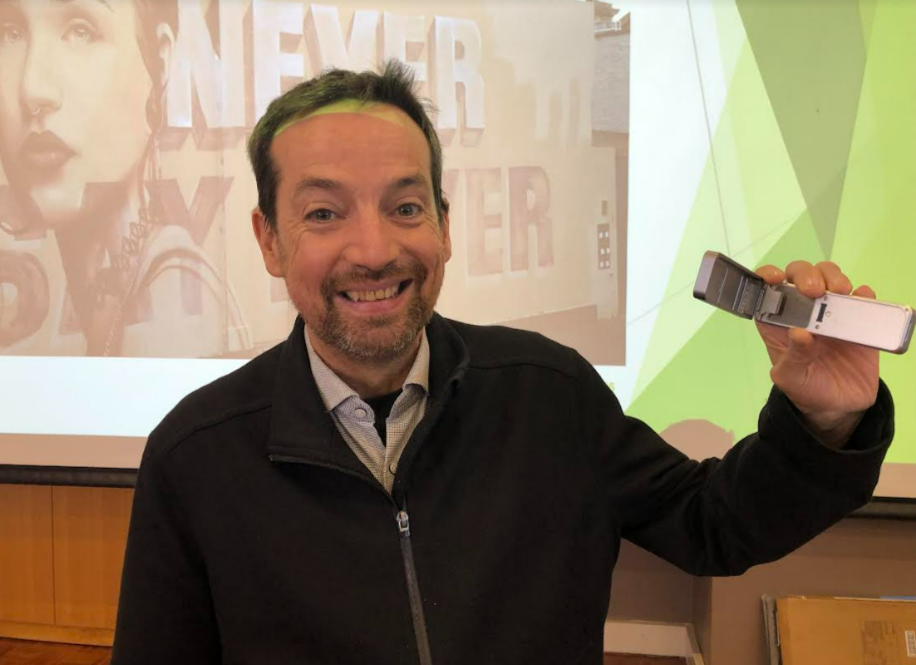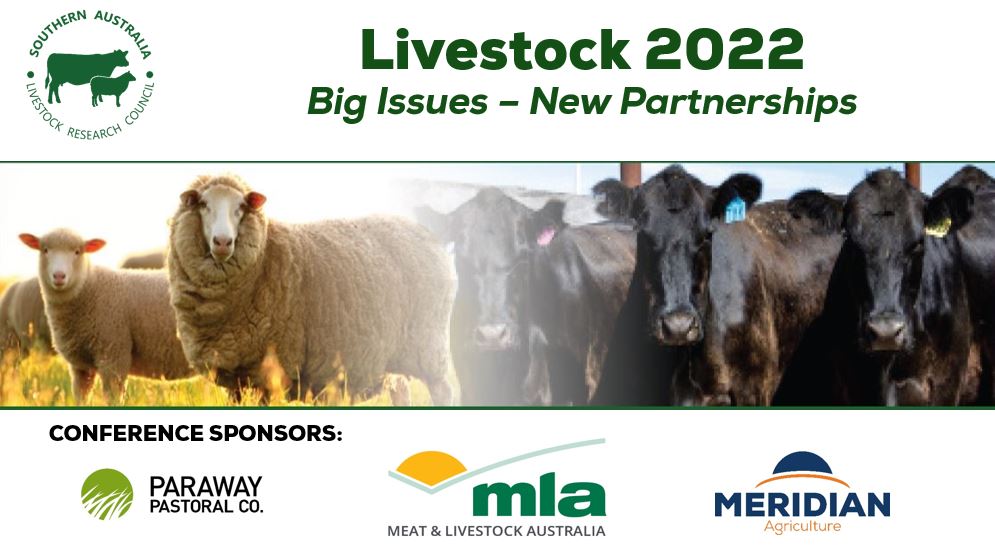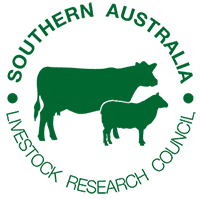“SALRC was excited to host the Livestock 2022 (L2022) Conference in Melbourne on 6-7 September 2022. The aim of L2022 was to identify trends which will impact on a successful livestock production business of 2035 so as to be able to identify future areas of enabling research. The 80 attendees, including scientists, extension professionals and producers, were split into ten groups and asked to think about future trends by focusing on five different scenarios developed by conference facilitator, Futurist, Paul Higgins.
These scenarios were:
- Sensors Everywhere
- Natural is King
- Diversification of Landscape
- Robots Everywhere
- The New Cooperatives
In working through the scenarios, conference attendees listened to presentations from four keynote speakers with topics aimed at providing information on both current and future trends across all five scenarios.
Day one saw Emma Weston, CEO and Co Founder of Agri Digital, give insights into the future of on-farm technology. Ms Weston stressed the future value of data along the supply chain. Eventually data about the meat value of livestock will assist in achieving ’Value Based Marketing’.
Attendees then heard from Dr Rebecca Huntley, who heads up her own research and consultancy firm working closely with climate and environment NGOs, government and business. Dr Huntley focused on climate change strategy and communication, then delved into social values and ethics within our industries. The key lesson from Dr Huntley is that from a practical viewpoint perception is reality. Whether what the customer believes about red meat production and its effect on the environment is true, we in the industry need to accept that that is what is believed and be active in correcting false information.
Day two commenced with a presentation on biotechnology for improved livestock production and sustainability from Professor Ben Hayes, Director of University of Queensland’s Centre for Animal Science. Professor Hayes delved into key drivers for the industry (incl. fertility, meat quality, methane and welfare), genomics (incl. livestock, rumen and on-farm), gene editing, organoids and the concept of modelling known as digital twins (a real-time virtual representation of a real-world physical system/process that serves as the indistinguishable digital counterpart of it for practical purposes).
It was identified that the recent advancements in gene sequencing technologies as a direct result of the COVID pandemic, now offer rapid crush-side trait assessment in a fraction of the time of the current lab-based technology. Professor Hayes predicted that portable sequencing technology would have application in determining genomic breeding values for traits such as methane emission, feed efficiency, reproduction and growth in cattle and sheep.
Professor Paul Wood, Monash University, discussed competing products (factory produced meat and milk like products) and how consumer lifestyles will impact the livestock industries. With population growth and changes in meat consumption across nations impacting on our livestock industries, Professor Woods identified a number of alternative / complimentary protein sources currently available on the market (incl. plant based meat, plant based dairy, fungi, algae, insects, cell-based meat, precision fermentation). Professor Woods’s prediction for the marketing of food by 2030 was that it will be on the basis of nutritional value vs environmental footprint.
The conference wrapped up with attendees sharing their views on the five scenarios that were presented to the conference.
Tess Herbert, Livestock Producer and Red Meat Panel Chair, commented “the SALRC conference had a very thought-provoking program, exploring scenarios out to the year 2038 and where our industry might be positioned. I also loved the scholarships that were offered to younger professionals or producers so they could be involved in industry discussions.”
Christine White, Northern NSW SALRC Regional Chair, said “the calibre of the speakers was industry leading. The combination of researchers, livestock consultants and producers workshopping together on the future tools of our industry was unique. From sensors, robotics, farming systems, biotechnology or consumer social perspectives. It was an electric mix of ideas and conversations over two days.”
Gus Rose, MLA Program Manager Consultation commented “Having a mix of people with different roles in the industry was a great way to discuss how we can work together to work through future challenges. A highlight was the input from the young scholarship participants.”
SALRC Chair, Ian Rogan said that “SALRC will use the information from L2022 to frame its approach in identifying areas of future research“.

….UQ Professor Ben Hayes with a portable genome sequencer (photo courtesy of Terry Sim, Sheep Central).
SALRC would like to extend their thanks to conference sponsors Meat and Livestock Australia, Paraway Pastoral Co. and Meridian Agriculture.

